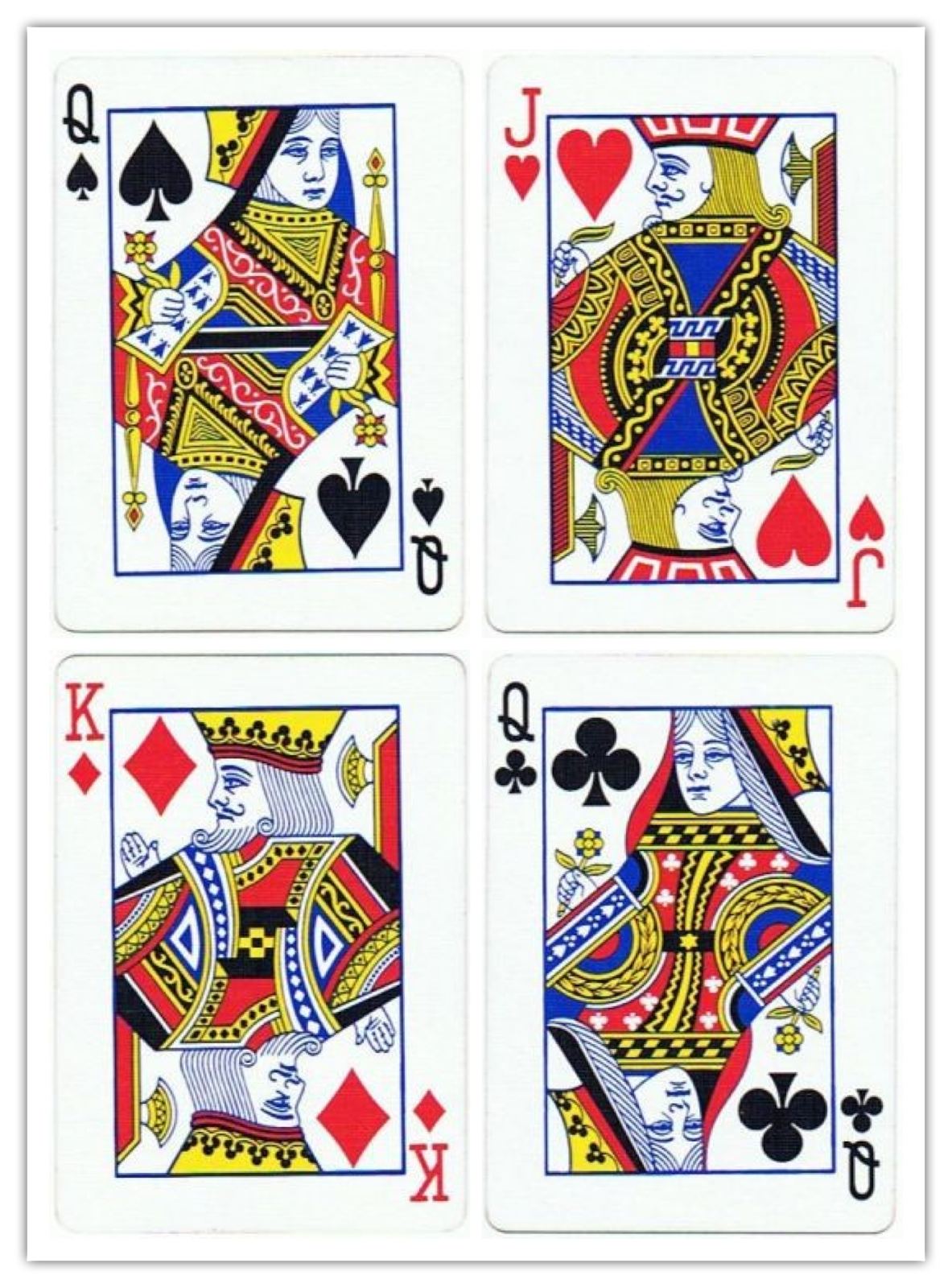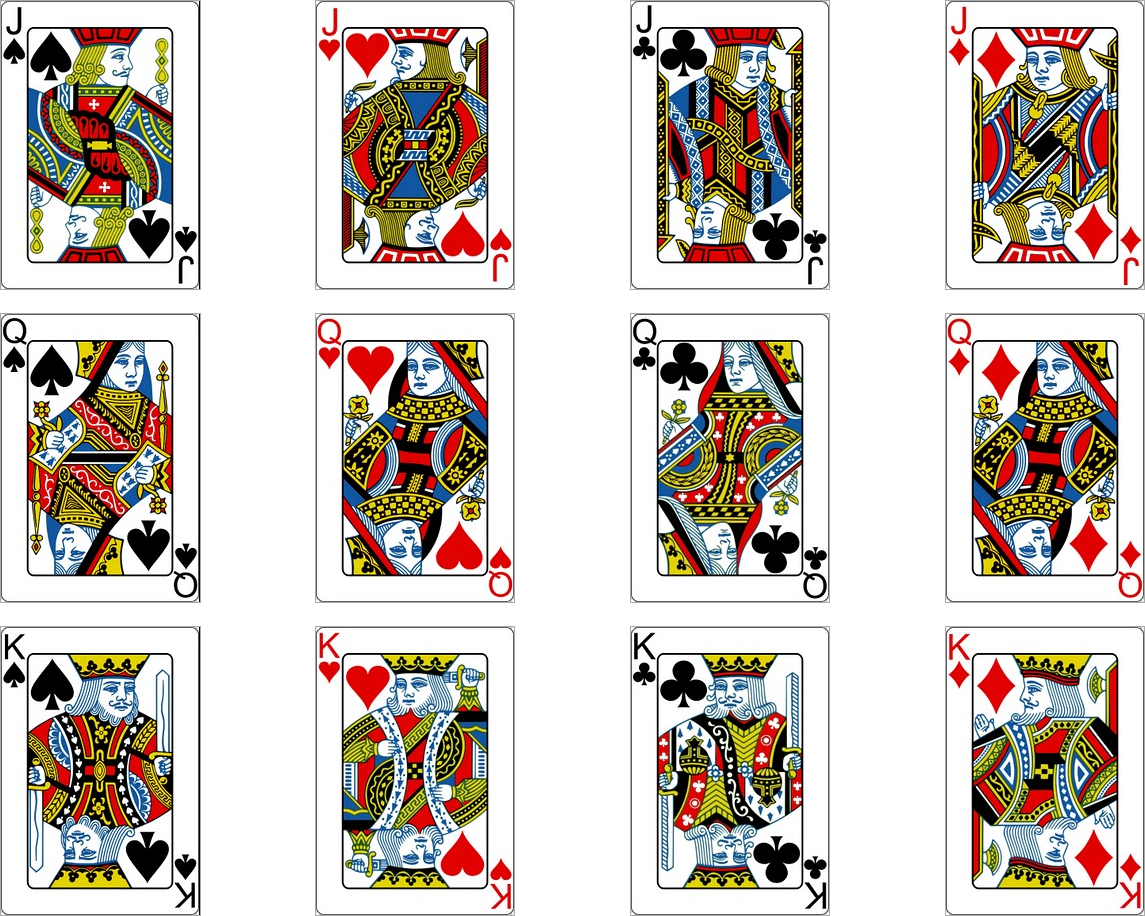In the world of card games, the term "face card" carries significant weight and meaning. These cards, which display portraits of royalty, play a critical role in various games, adding depth and strategy to the gameplay. While many players may have encountered them, few truly understand what a face card is and its implications in different contexts. This article delves into the definition, significance, and nuances of face cards, providing insights that can enhance your gaming experience.
Face cards, often referred to as "court cards," typically include the King, Queen, and Jack from each suit in a standard deck of playing cards. These cards not only serve as high-ranking cards in many games but also carry unique characteristics that differentiate them from numbered cards. Understanding their value can change the way you approach your game strategy, whether you're playing poker, blackjack, or other card games.
This article will explore various aspects of face cards, such as their historical significance, how they are used in different card games, and frequently asked questions related to them. So, if you've ever wondered what a face card is or how it can impact your game, keep reading to uncover the fascinating world of these royal cards.
What is a Face Card?
A face card is essentially a card that features a portrait of a character, typically a royal figure. In a standard deck of 52 cards, the face cards consist of three cards per suit: the King, Queen, and Jack. This means there are a total of 12 face cards in a deck. Each card has unique attributes and values, contributing to its significance in gameplay.
How Do Face Cards Differ from Numbered Cards?
Face cards differ from numbered cards in several ways:
- Value: Face cards generally have a higher value than numbered cards. In many games, they can be pivotal in determining the outcome.
- Design: Face cards feature illustrations of royalty, while numbered cards display their value in digits.
- Gameplay Function: In certain games, face cards can have unique roles or abilities, such as acting as wild cards or contributing to special combinations.
What Games Use Face Cards?
Face cards are prevalent in numerous card games, each utilizing their value differently. Here are some popular games that incorporate face cards:
- Poker: In poker, face cards can be essential for forming high-ranking hands.
- Blackjack: Face cards are worth ten points, making them crucial in reaching a total of 21.
- Bridge: In this strategic game, face cards play a significant role in earning points and winning tricks.
- Rummy: Face cards can enhance players' hands, influencing the game's outcome.
Why Are Face Cards Important in Strategy?
Understanding the role of face cards can greatly enhance a player's strategy. Here’s why:
- High Value: Knowing when to play or hold onto face cards can lead to a significant advantage.
- Bluffing Opportunities: Players can use face cards to bluff opponents, creating uncertainty about their hand strength.
- Game Dynamics: Face cards can change the dynamics of the game, influencing other players' decisions.
What is the Historical Significance of Face Cards?
The historical significance of face cards dates back to the origin of playing cards. Initially, playing cards were created in China and later spread to Europe, where they evolved into the decks we use today. The designs of face cards have varied throughout history, often reflecting cultural and societal values of the time. Understanding this history can deepen a player's appreciation of the game.
How Do Different Cultures View Face Cards?
Different cultures have unique interpretations of face cards. For instance:
- Western Culture: In Western card games, face cards symbolize nobility and power.
- Eastern Culture: Some Eastern cultures use face cards in traditional games, often with different designs and meanings.
What Can You Learn from Playing with Face Cards?
Playing with face cards can teach valuable lessons:
- Strategic Thinking: Players must consider their moves carefully, especially when face cards are involved.
- Risk Assessment: Understanding the value of face cards helps players gauge risks and rewards.
- Social Skills: Card games often involve social interaction, allowing players to develop communication and negotiation skills.
Conclusion: Embracing the Face Card Experience
Understanding what a face card is can significantly enhance your approach to card games. Whether you’re a casual player or a serious strategist, recognizing the value and significance of face cards can elevate your gameplay and overall enjoyment. So, the next time you shuffle a deck, take a moment to appreciate the royal cards and the rich history they represent.
You Might Also Like
Unveiling The Allure Of The Bathtub Scene In SaltburnUnraveling The Mystery: Where Does Eminem Live?
Exploring The Phenomenon Of SpaceHamster On Twitch And Lethal Company
Unleashing The Hilarity: Will Ferrell And Cowbell
Experience The Thrill: Lions Game Today Live
Article Recommendations
- Alexis Bledel
- Jonathan Groff Relationship
- Bette Davis
- Statewins
- Vegamovei Nl
- Brooke Monk Deepfake Porn
- 1 Guy 1 Jar Video
- Puff Daddy Net Worth
- Cityscopenews8_0.xml
- Gutfelds Wife


